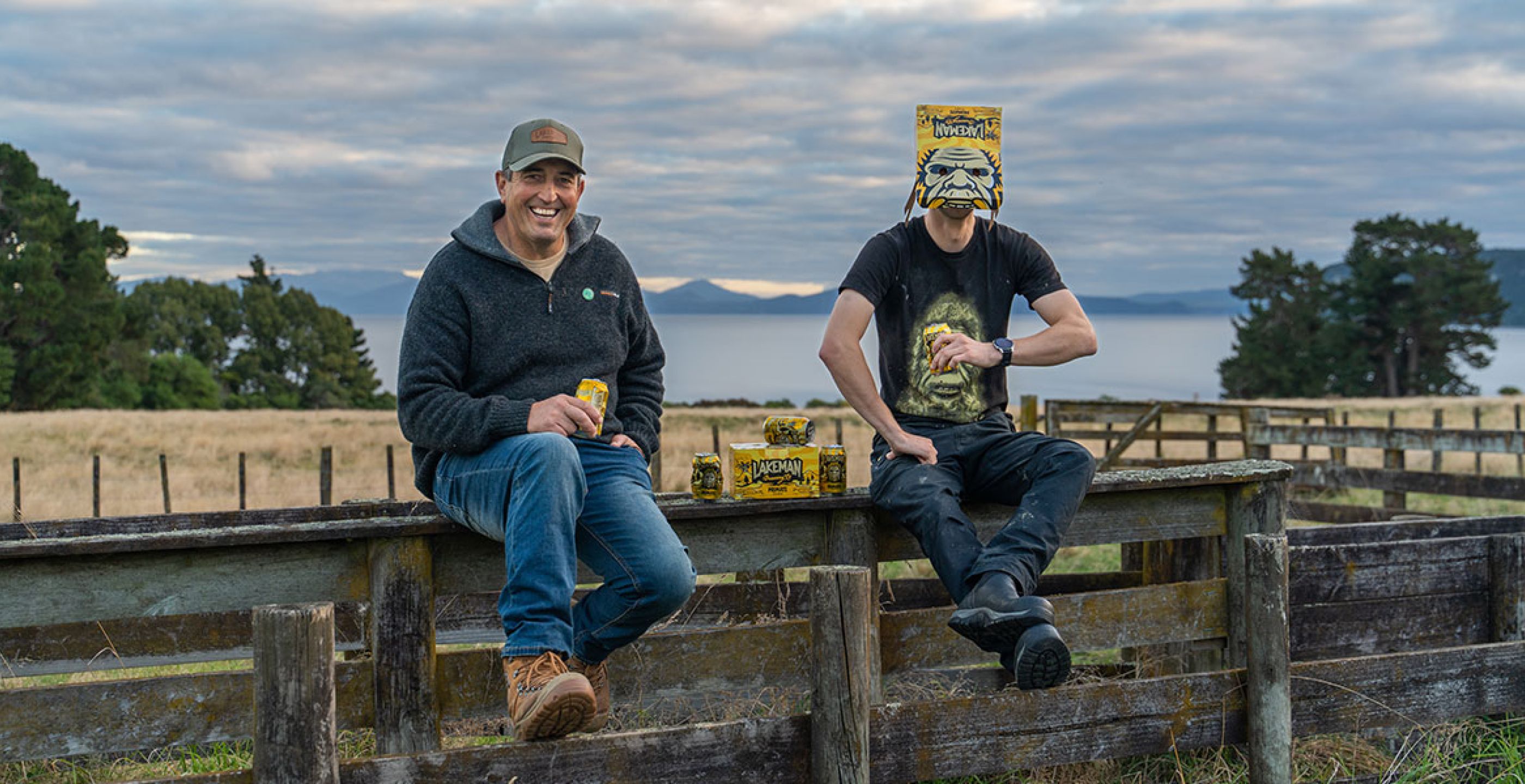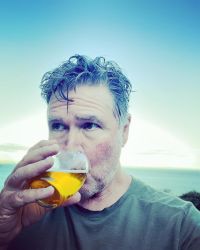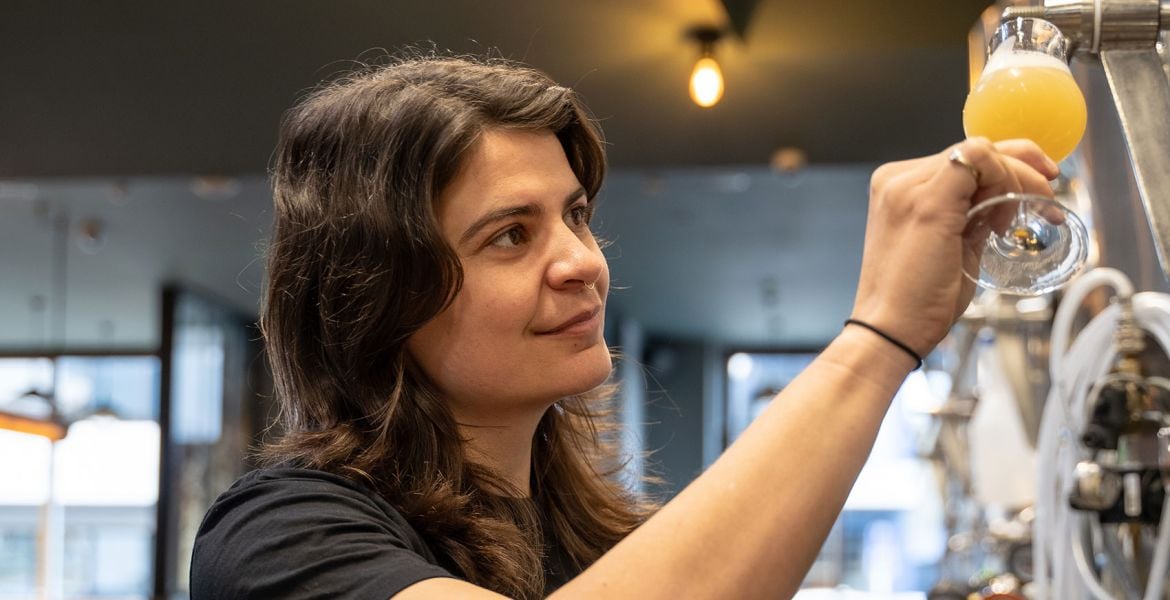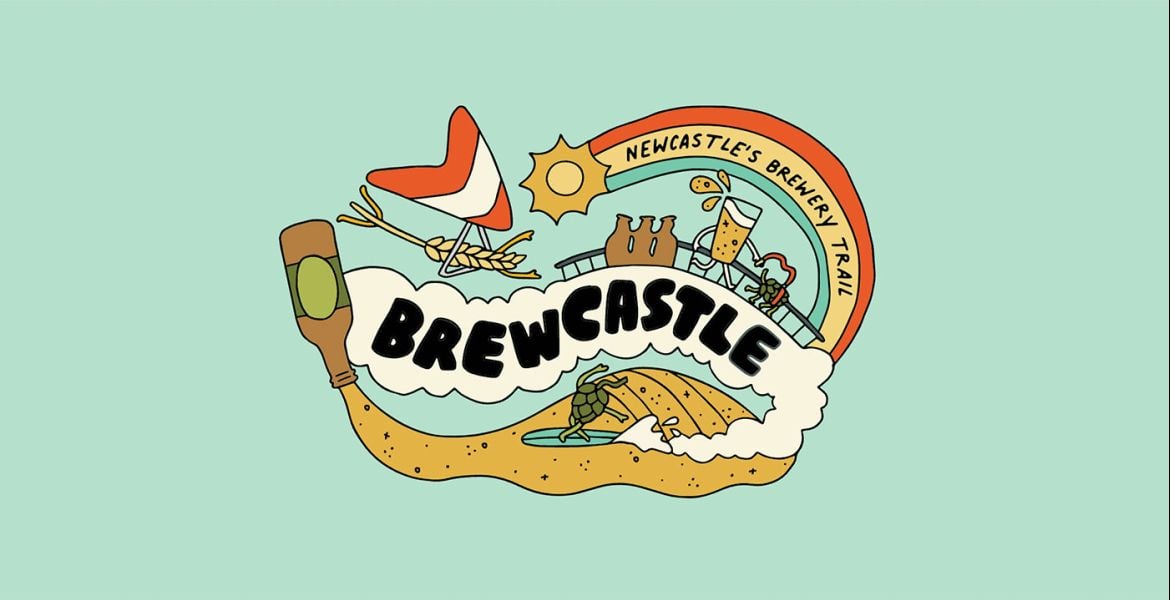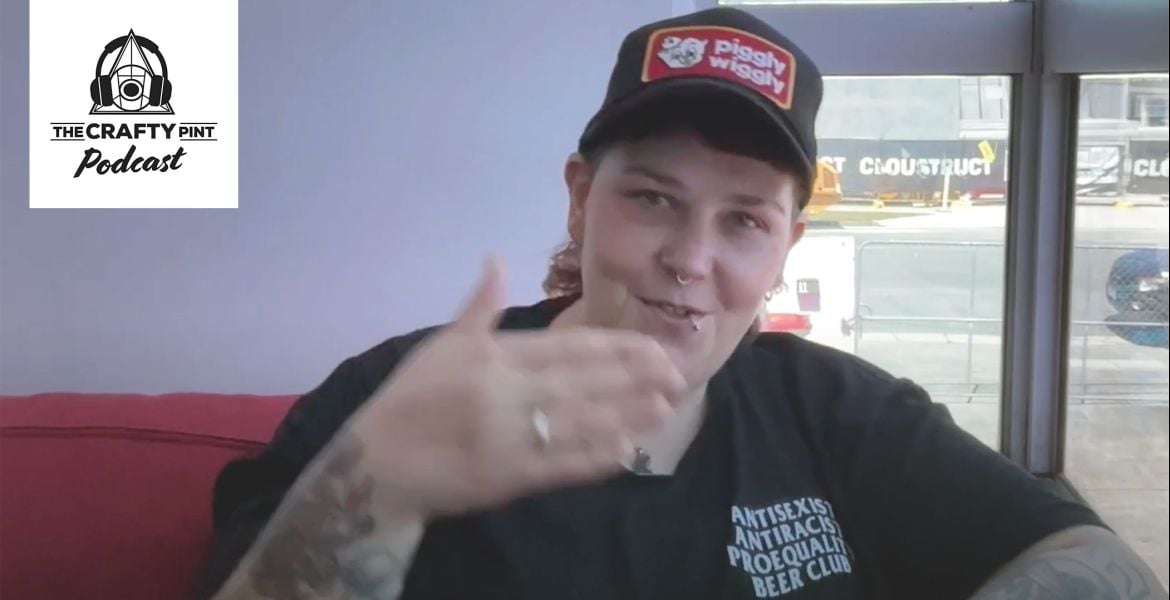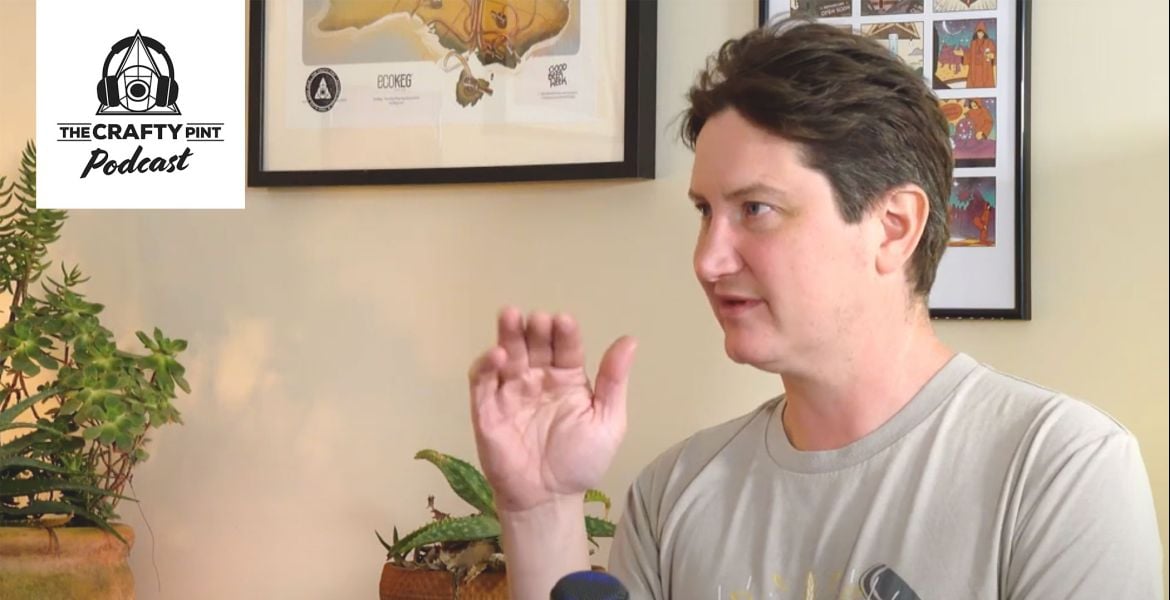New Zealand's Lakeman Brewing took out the Supreme Beer Award at the recent New World Beer & Cider Awards with their Primate Pilsner. Here, Pursuit of Hoppiness editor Michael Donaldson tracks their incredible decade-long journey from absolute beginner to award-winner.
Sitting outside the old farm shed that houses Lakeman Brewing, I cast my eye over a paddock of around two dozen heifers, some with calves, some about to give birth.
At the start of my interview with Lakeman owners James and Elissa Cooper there are seven calves — by the time we finish chatting and crack open a can of 5 O’clock Somewhere (it is, after all, 5pm) there are eight calves in the paddock, with the newest addition staggering like the veritable drunken sailor as it finds its feet.
The cows are grazing on the lush grass that’s been “fertilised” with old hops and yeast. What would otherwise be waste from the brewery is pumped into a nearby water tank where it’s mixed with irrigation water and then sprayed on the field.
“It might just be me,” James says, “but I swear the grass is better.”
At other times the cows will feast on spent grain while elsewhere lambs are fattening up on lush grass in preparation for slaughter.
That night we eat venison backstraps from a deer James recently shot himself, discuss his love of country music — he’s enthusiastic about an upcoming tour by Luke Combs — before he happily tells stories at his own expense: like the day he turned down breakfast with Paul McCartney.
That was more than 20 years ago when he was overseas and worked for a mate who had a fencing job — to keep wild boar out of McCartney’s Sussex farm.
One day the former Beatle walked out to check the progress and invited him for breakfast.
“We were fencing to keep the wild boar out of his farm, it was well over 20 years ago," James says. "I was over there fencing and the guy I worked for had the contract to fence his farm.
“He [McCartney] asked me if wanted breakfast. And I said: 'Nah, I gotta get to work'.”
Asked if he regrets not taking a magical mystery tour of McCartney’s property, James shrugs.
“I dunno … the guy who I worked for knew him pretty well and he went off to have a cup tea and toast and jam and I was like, ‘Nah, I’ll carry on here’.”
It’s typical James Cooper — humble, self-effacing, good work ethic — all the qualities he’s poured into Lakeman.
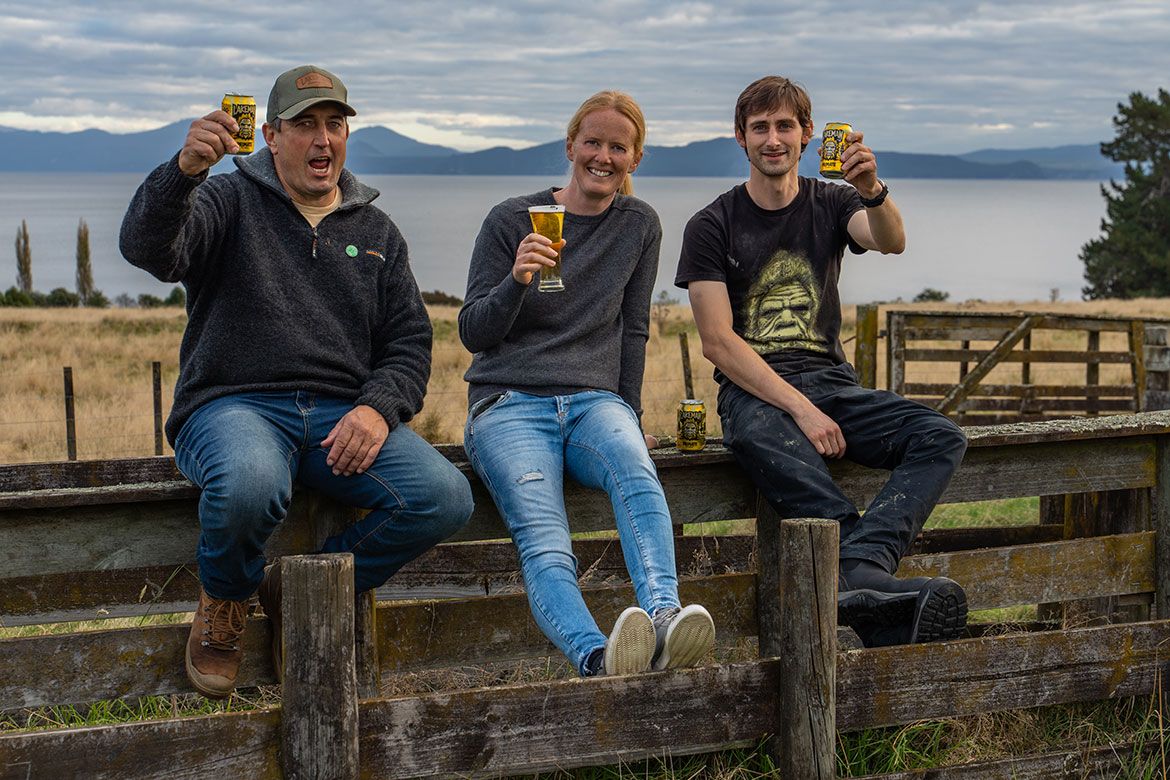
How a Kiwi farmer, born and raised in the rural heart of the North Island came to brewing is the polar opposite of nearly every other professional brewer in the country. There’s no homebrew background, no previous experience in a big brewery, no engineering or chemistry background, and no knowledge of beer whatsoever, apart from the fact he liked drinking it.
Everything that led to Lakeman is hinged on world-leading regulations brought in more than a decade ago to protect the wonderful Lake Taupō, New Zealand’s largest lake and a major tourist destination in the summer months.
To keep nitrogen out of the lake, the local regional council introduced nitrogen limits for farmers in the area, capping how much stock they could run and how much fertiliser they could use.
The Nitrogen Discharge Allowance is a complex package, unique in the world, but it met stern resistance when it was introduced. Some farmers decided it was impossible to work with and turned their land over to trees, others left the land altogether. Farm prices dropped.
For the Coopers, it offered a chance to buy the farm they’d wanted but couldn’t previously afford.
The price of entry, however, was a strict limit on how much livestock they could run (animal pee has nitrogen in it) and how much fertiliser they could use.
They needed another revenue stream.
Then came a flash of inspiration during a trip to Australia.
"We were capped on the livestock we could carry, and we needed a backup; something else, in case things fell over,” James says.
“We were in Australia and a mate gave me a bottle of Coopers. My last name is Cooper, and I had a lightbulb moment — let’s turn a negative into a positive. Let’s use that water we’ve been made to protect and make beer out of it, and that’s where the idea stemmed from and has grown.”
The “water situation” is a bore on the farm that delivers pristine fresh water to the brewery.
The Coopers had water, they had space on the farm for a brew shed. All they needed was some kit — which he bought second-hand off Tuatara when they expanded.
YouTube videos and Google got James started, but the first batches were appalling, and after a series of failures Elissa said he had one more chance — to say he nailed it might be an overstatement, but he produced a half-decent beer.
Helping James get the beer up to scratch were a bunch of mentors up the road in Hamilton. Greig McGill from Brewaucracy, Graham Mahy, who has worked at a number of New Zealand and Australian breweries, and Peter McKenzie at Shunters Yard.
“Those guys all helped me a lot and really hammered home the need for quality,” he says.
The question of a name for the brewery proved as elusive as quality beer early on until one day Elissa came up with Lakeman — a Bigfoot-type hairy creature that lives in the lake – and the brewery was ready to launch in 2013.
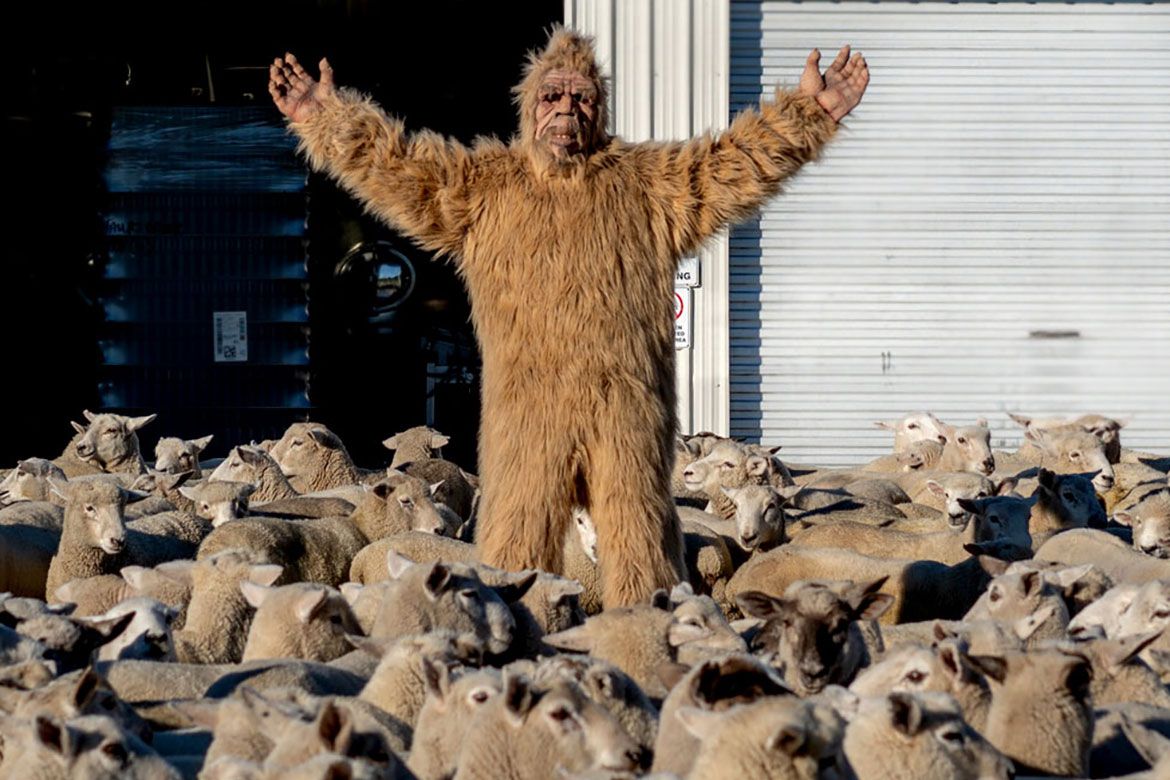
At early Beervana festivals, Lakeman always got noticed thanks to the brilliant costume they designed and which still features in much of their marketing. But the early years on the farm brewery were a real struggle.
“One year we survived on $18,000,” Elissa says. “Luckily, we had our own meat supply, but we were wearing second-hand clothes.”
They’ve had other major setbacks including the premature birth of twins Lexie and Pippa, who had associated health setbacks. The twins are now 11 and eldest daughter Ciana is 13.
In starting a brewery with a complete lack of knowledge on a remote sheep and beef farm in the Taupō hinterland, James often feels like an outsider in the industry.
“The way I learned to brew by Googling it, the fact we’re on the farm, the way we advertise … I sometimes feel like I’m the town clown," he says.
“Put it this way, we’re not the cool kids and a lot of people thought we didn’t know what we were doing.”
And then there’s the rural sense of humour, most explicitly used in their Hairy Box mixed six-pack, often criticised for its inherent sexism.
James takes a straightforward approach: the Lakeman is hairy and the beer comes in a box, while Elissa is happy to front-foot criticism.
“I have been interviewed before about our advertising being sexist. But there’s a sense of humour there. We’re not taking ourselves too seriously. At the time we started that, 80 percent of our staff were women and I’ve got three daughters … and I think you need to be able to laugh at yourself.
“The problem is there’s a disconnect, which is our fault, we haven’t done well in telling our story.
“But the truth is our brand wouldn’t exist without the Hairy Box, it’s our best-seller. When we launched it, it just blew up and the brewery wouldn’t be here without it. And a lot of the buyers are women and they tell us they like it, but it also clearly rubs some people the wrong way.
“We’re trying to be genuine and perhaps we didn’t understand what we were doing with marketing.”
The Coopers say they have tweaked their marketing in recent years, but their well-made social media posts still have a down-to-earth rural vibe and a sense of humour that taps the same vein as the old Speight’s Southern Man ads of the 1980s.
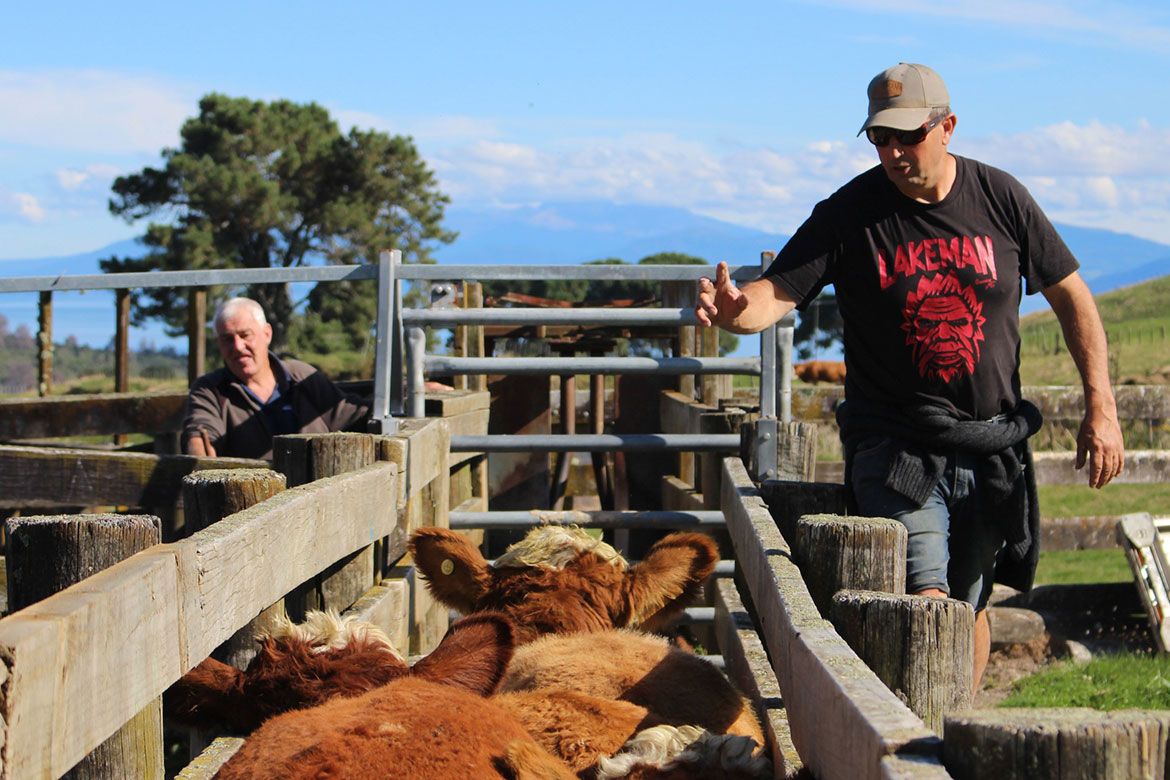
One of the blessings and curses of Lakeman’s location high in the hills above Lake Taupō is that lots of people turn up to the farm gate expecting to find a taproom.
The blessing is the absolute beauty of the location but it’s a curse because, well, there’s no taproom … yet.
Over the years, Lakeman have happily entertained the unannounced guests as best they can, figuring that if they’ve taken the time to find the place, they deserve a couple of samples.
And it says something about the brewery’s unique appeal that the visitors over the have included some craft beer royalty.
“I was down at the brewery one day and a four-wheel drive pulled up and this American couple got out,” Elissa says of one memorable visit.
“He said, 'Can we do a tasting?’ I explained that we didn’t have a tasting room but said, ‘Come with me …’
“And he was, ‘No, it’s OK I can see you’re busy’.
“Then he asked a couple of unusual questions about the brewery, so I asked him if had a background in brewing."
The couple, staying nearby at Kinloch, were a pair of keen golfers, Jim and Julie Buechler.
If those names sound familiar, Jim was chief executive of Ballast Point from 2012 to 2016 and Julie was general counsel at the brewing legend. Both left the company along with many others after Constellation Brands paid a ginormous $1 billion to buy the San Diego craft brewery in late 2015.
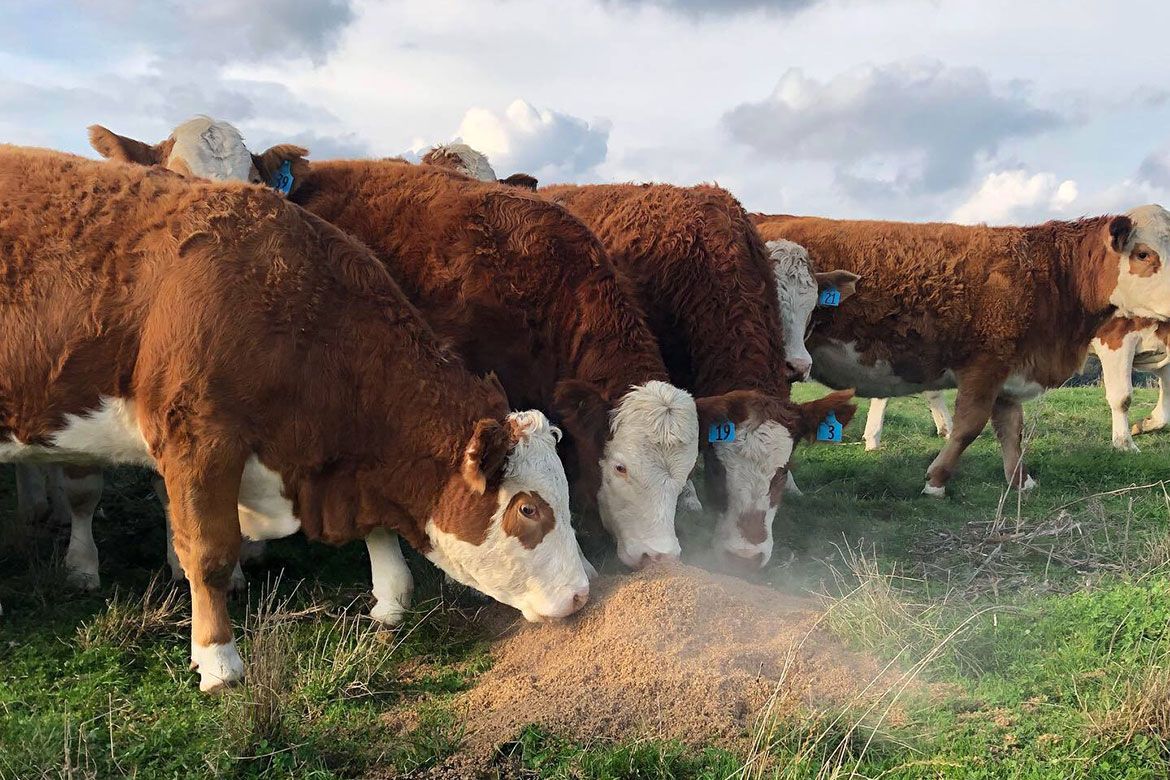
After learning who they were, Elissa insisted on taking them down to the antithesis of a billion-dollar brewery — their small farm shed setup.
“But he said, 'No I see you’re busy I won’t hold you up, I love your beer’. And I wasn’t pushy enough to say stay and chat. I really regret that,” she says. “And James wasn’t around so he didn’t know what he’d missed.
“I went to [head brewer Rory Donovan] and said the CEO of Ballast Point just came in and says he likes our beer. But please don’t tell James, you can’t tell James. You can’t say anything because he will be so angry that I didn’t keep them here.”
About an hour later James came up to the house and said to Elissa: “So I hear the guy from Ballast Point was here.”
She went back down to the brewery and saw that Rory had given the game away by writing on one of the tanks: “The CEO of Ballast Point loves our beer.”
They’ve had other visitors from the local brewing industry, including Dave Bell from Garage Project’s Wild Workshop who called in while holidaying in Taupō. That kind of visit gives James a real boost. With their remote location, he admits they struggle with the kind of institutional knowledge that comes with brewing in a city and regular contact with others doing the same thing.
“The opportunity to talk ‘beer’ with someone is really important,” James says. “When Dave from Garage Project came here it was so refreshing to speak beer with him — he was a hell of a nice guy and it was just great talking to him.”
The Coopers use a woolshed on their property for occasional events and they dream of having a permanent taproom on the farm.
Until that dream can be realised, they’ve set up a bar in town: Jimmy Coops, a joint venture with local hospitality power couple Vaughan and Leanne Nairn. It sits on the popular waterfront stretch by Lake Taupō and they’re hopeful it will give their volume a nudge along.
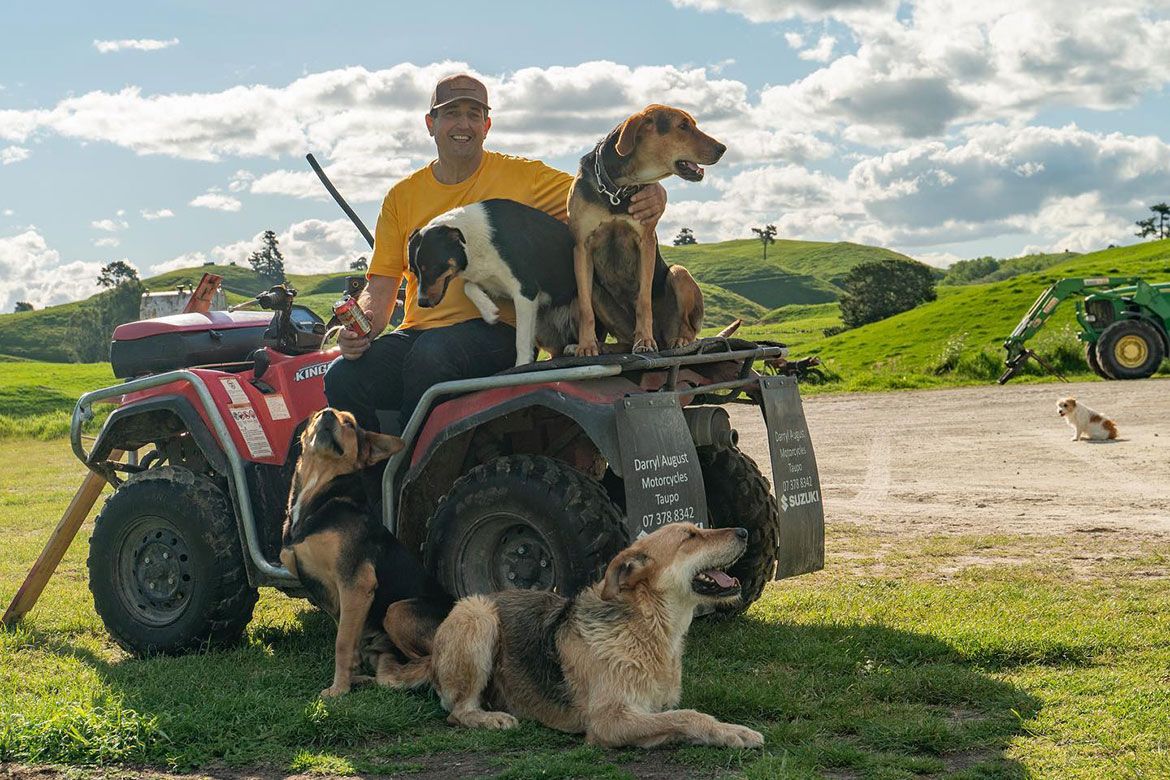
Despite the long and winding road to where they are now, it’s fair to say they’ve arrived.
In 2018, they won the IPA trophy at the New Zealand Beer Awards with their Hairy Hop IPA and, in 2019, won a second trophy, for best barrel-aged beer, with Hairy Craic, an imperial stout aged in whisky barrels.
Last year, they took home three gold medals at the Australian International Beer Awards (Hairy Hop IPA, Hairy Craic and Taupō Thunder Pale Ale) as well as four silvers and one bronze from eight beers entered. They took in another 13 medals at last year’s NZ Beer Awards.
And now their Primate Pilsner has taken the Supreme Champion at the New World Beer & Cider Awards.
“I was really, really, really stoked,” James says of this latest award, “because this beer has been a hard one to nail.”
Rory adds that when the results came in there was only one description for his boss: “I would describe James’s features as ecstatic.”
The biggest change to the recipe for Primate Pilsner came after this writer visited the Coopers for a story last year and we discussed the way New Zealand-style pilsners were mostly brewed with an ale yeast.
“Remember that chat we had about ale yeast,” James says, “well, we’ve been playing it with since then.”
The switch in yeast, from a lager strain to an ale strain, came with associated changes to the hop additions, a shift to a new malt provider, and consultation with Sam Williamson, formerly of Sawmill and now at Pacific Coast. In short, they revamped the beer completely.
Now that they’ve nailed a champion beer, you’d think the recipe was set, but Rory thinks James won’t be able to help himself and more changes could be made as they seek the perfect drop.
“That’s what tinkering’s all about,” James interjects with a laugh.
“But we changed the yeast, I started drinking the pilsner more than I had. And our Untappd ratings are definitely going up and up.”
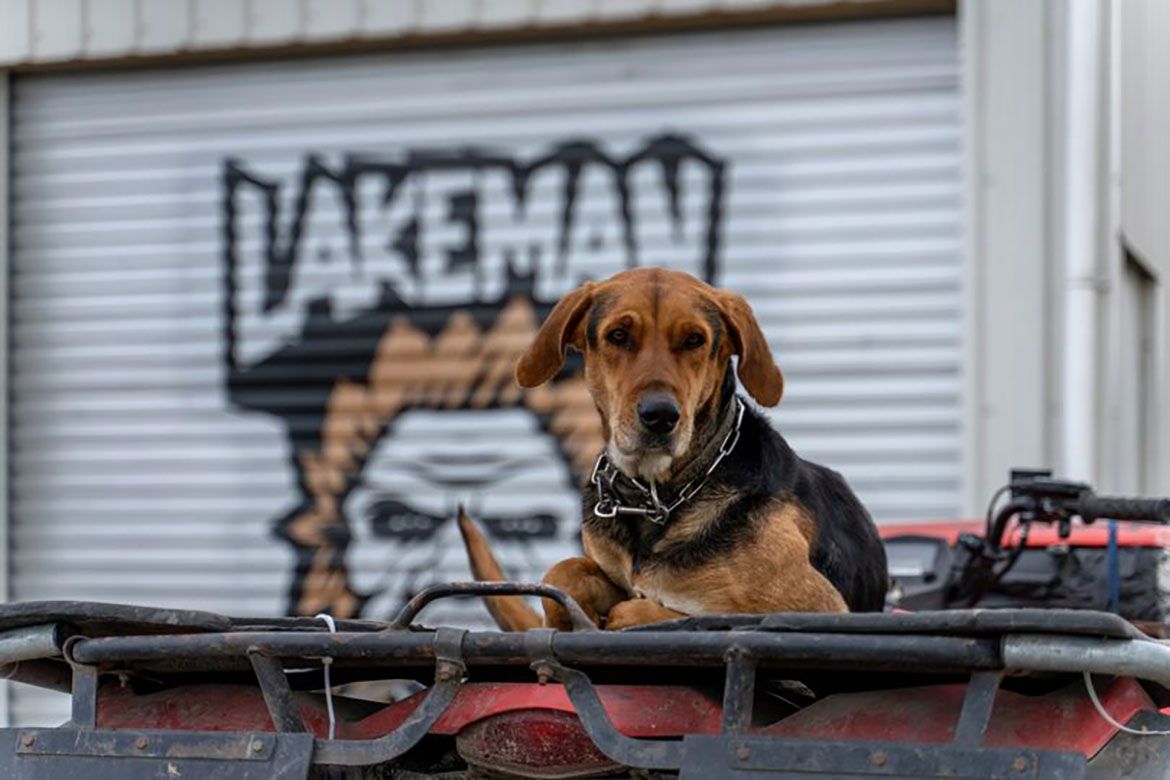
The tinkering that paid off with the beer also applies to the farm.
The Coopers run between 120 and 150 cows across their property and another leased block nearby. At any one time, there will be 2,000 to 2,500 lambs fattening up on grass.
Fattening up cows and sheep isn’t as simple as putting them in a field and letting them eat all the grass and hitting repeat each year. The land needs constant nurturing to replace nutrients but the Coopers are trying to minimise the impact they have.
James is reluctant to use the phrase “regenerative farming”, which has become both a buzzword for sustainable farming but also a bone of contention in New Zealand farming circles. Without going into the complex details, the Coopers have minimised their impact on the environment but, despite moving to less intensive, less damaging practices, they are still getting good, if not better, results.
“This farm was rundown when we took it over and now it looks great: lots of green pastures,” James says.
“We’re still finishing lots of lambs, getting good weights, and costs have gone down. It’s not quite regenerative farming but we have backed off on intensity and are still running the same amount of stock.”
And looking after the land they farm has repercussions for the brewery, with James pointing to the pristine water they use for the brewery.
"At the end of the day, it is all related," he says. "It's hard to know where the groundwater comes from, but there are some bores around this area that have higher levels of E. coli, for instance.
"I'm not an environmentalist, but because of the nitrogen capping we had to ask ourselves: how can we do this better? It was more a practical way of thinking.
"The farm and brewery rely on each other to a large extent. I do love the farming side of it – drenching, weighing, moving stock – for me, it's like golf is for other people. I enjoy finishing lambs – they are my thing and what we're good at.
"And with both farming and brewing, there's always something you're working on; you're always tweaking things, trying to make it perfect.”
When he started the brewery, James admits there were doubts about his sanity among his farming colleagues.
"Yeah, they thought it was a bit of a joke," he says. "But, at the time, the craft beer thing was starting to take off, and now that we've got a few credentials and won a few awards, people are starting to say, 'Yeah, OK…'”
The full New World Beer & Cider results can be found here.






